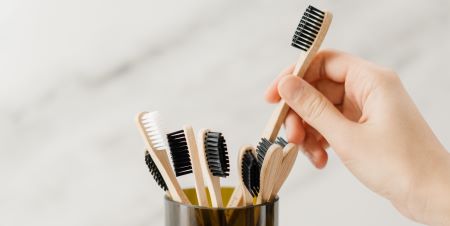When it comes to dental hygiene and achieving a bright, dazzling smile, people are often on the lookout for innovative products. In recent years, charcoal toothpaste has gained considerable popularity, claiming to have remarkable stain removal properties. But does it really live up to the hype?
We will explore the effectiveness of charcoal toothpaste in removing stains and delve into the science behind this trending oral care product.
Understanding Charcoal Toothpaste
What is Charcoal Toothpaste?
Charcoal toothpaste is a dental product that contains activated charcoal, a fine black powder derived from carbonaceous materials such as coconut shells or bamboo. This activated form of charcoal is known for its highly porous structure, allowing it to absorb impurities and toxins.
How Does Charcoal Toothpaste Work?
The primary theory behind charcoal toothpaste’s stain removal ability lies in its adsorptive properties. Charcoal particles, due to their porous nature, can bind to certain molecules on the teeth’s surface, including stains and plaque. As a result, the charcoal can potentially remove extrinsic stains caused by substances like coffee, tea, or tobacco.
Evaluating the Effectiveness of Charcoal Toothpaste for Stain Removal
The Abrasive Nature of Charcoal Toothpaste: One key factor to consider when assessing stain removal is the potential abrasiveness of charcoal toothpaste. Due to its gritty texture, there is a possibility that prolonged or aggressive use of charcoal toothpaste may cause enamel erosion or tooth sensitivity. Dentists generally advise caution in using abrasive toothpaste.
Lack of Clinical Evidence:
While anecdotal evidence and marketing claims may suggest that charcoal toothpaste is effective in removing stains, there is a scarcity of robust scientific studies to support these assertions. Existing research is limited and often inconclusive, making it difficult to ascertain the true efficacy of charcoal toothpaste in stain removal.
Possible Masking Effect:
Another aspect to keep in mind is the possibility of charcoal toothpaste merely creating an optical illusion. The dark color of the toothpaste might give the impression of stain removal by temporarily darkening the teeth. This masking effect can mislead users into believing that their teeth are whiter when, in fact, the stains remain.
Alternative Stain Removal Methods
Professional Dental Cleaning:
For individuals seeking significant stain removal, professional dental cleaning remains the gold standard. Dentists utilize various techniques, such as scaling and polishing, to remove stubborn stains effectively. Regular dental visits can help maintain oral health and address any concerns regarding stains.
Established Whitening Toothpaste:
Several whitening toothpaste brands have been developed with proven stain removal capabilities. These toothpaste formulations often contain mild abrasives, chemicals, or enzymes that can break down stains effectively. Opting for reputable whitening toothpaste can be a reliable alternative to charcoal toothpaste.

While charcoal toothpaste has gained popularity for its purported stain removal properties, the scientific evidence supporting its effectiveness remains inconclusive. The abrasive nature of charcoal toothpaste and its potential long-term impact on oral health should be considered before regular use. For individuals seeking reliable stain removal, professional dental cleaning and established whitening toothpaste are preferable options. As with any oral care product, consulting with a dentist is advisable to determine the best approach for achieving a brighter, stain-free smile.
Read our article on Are Whitening Strips Bad for Your Teeth? Unveiling the Facts
